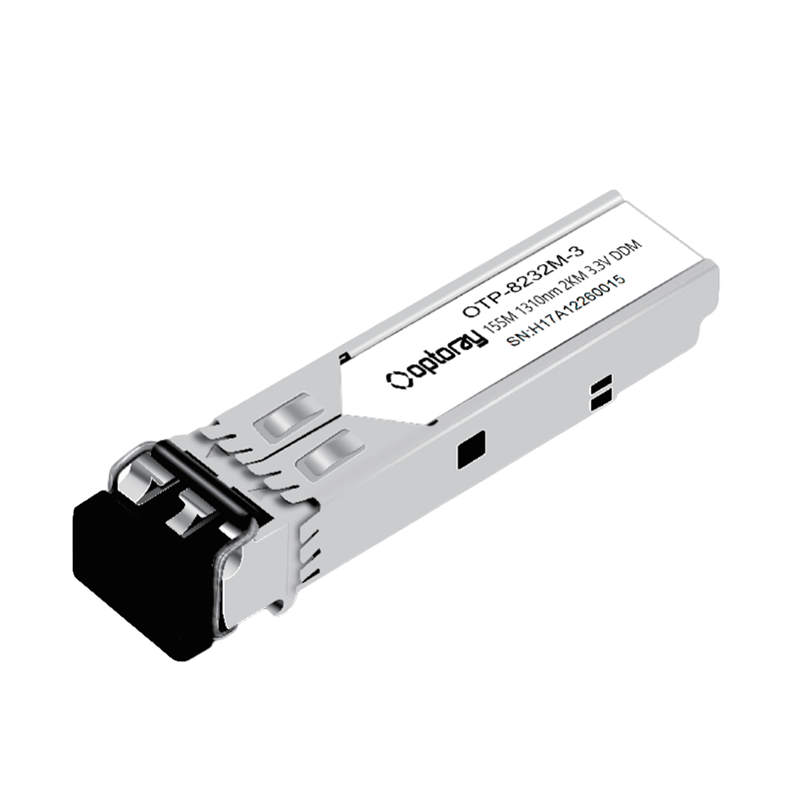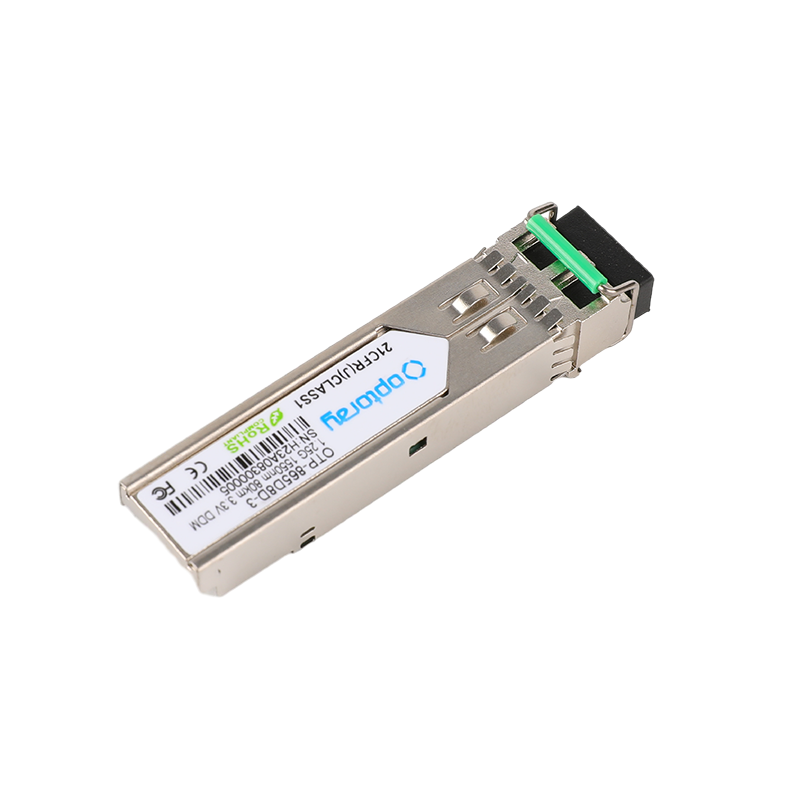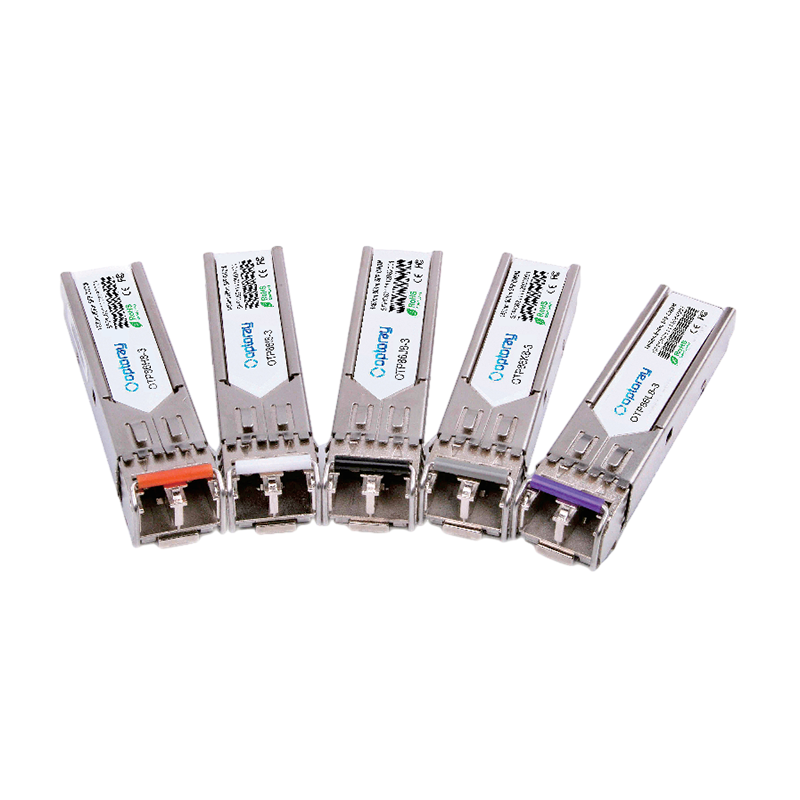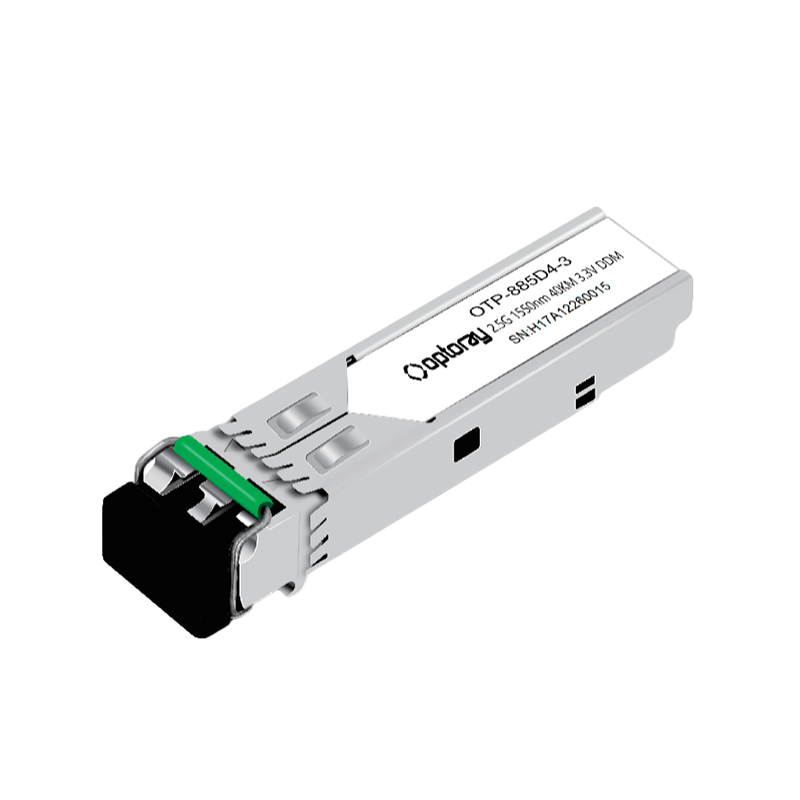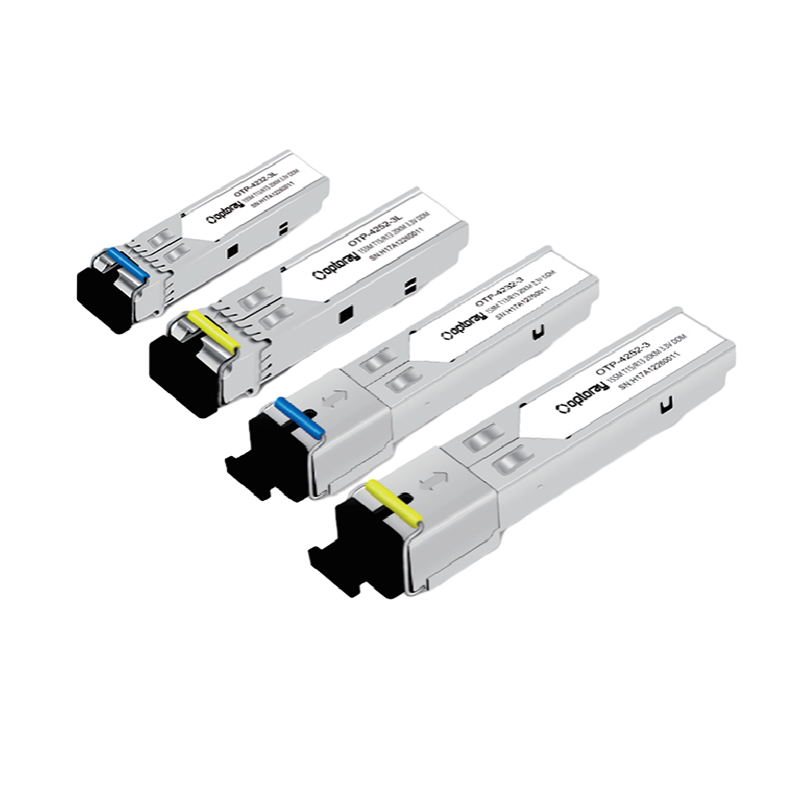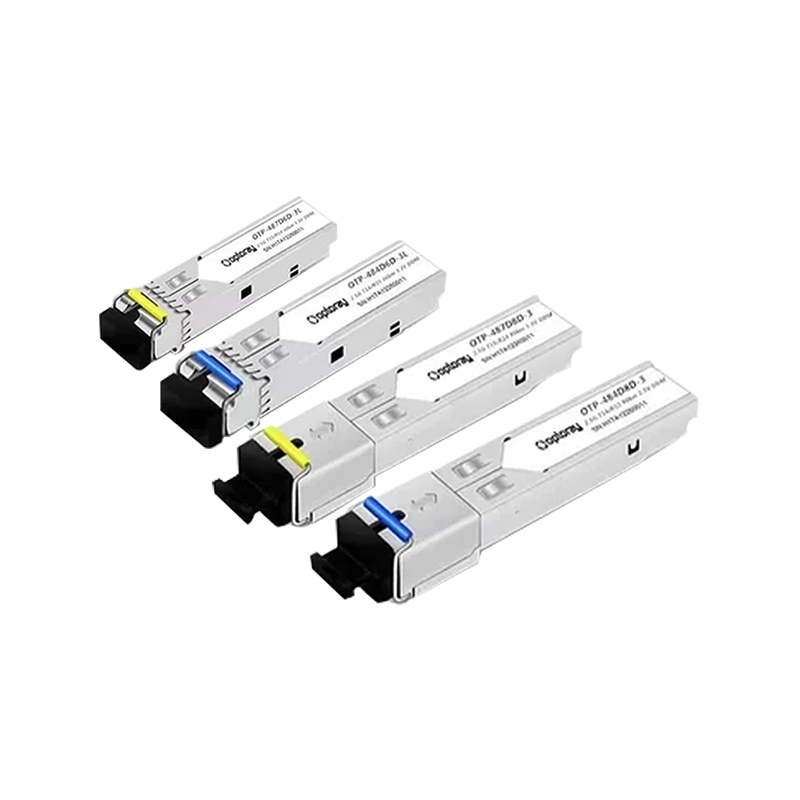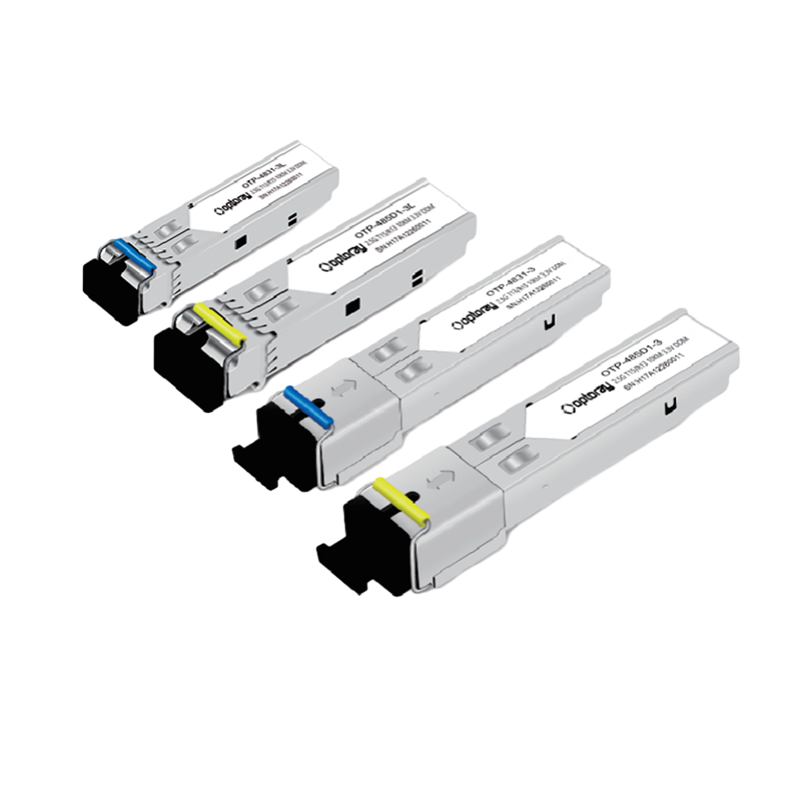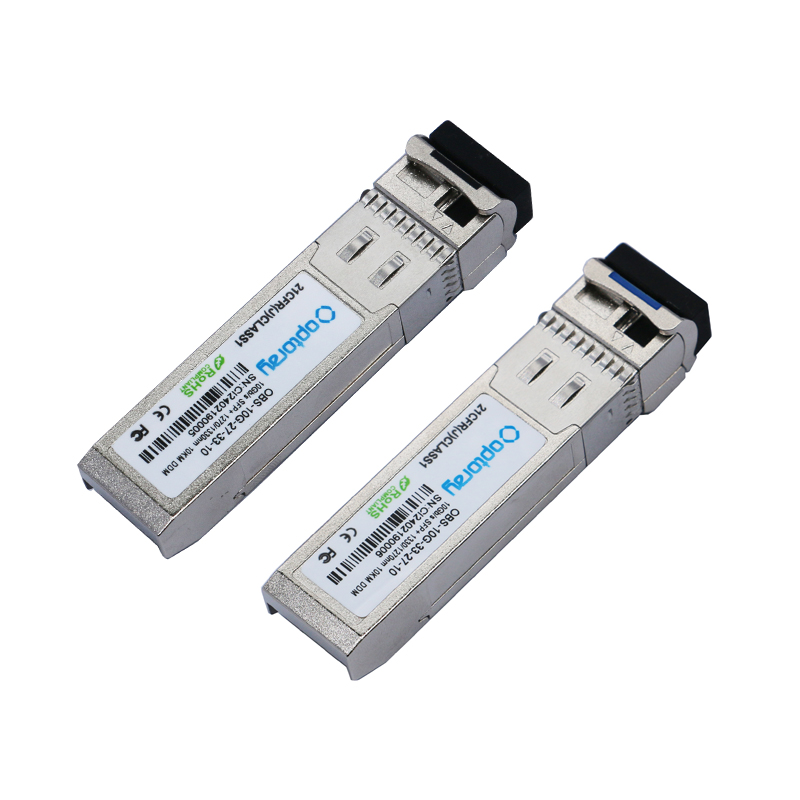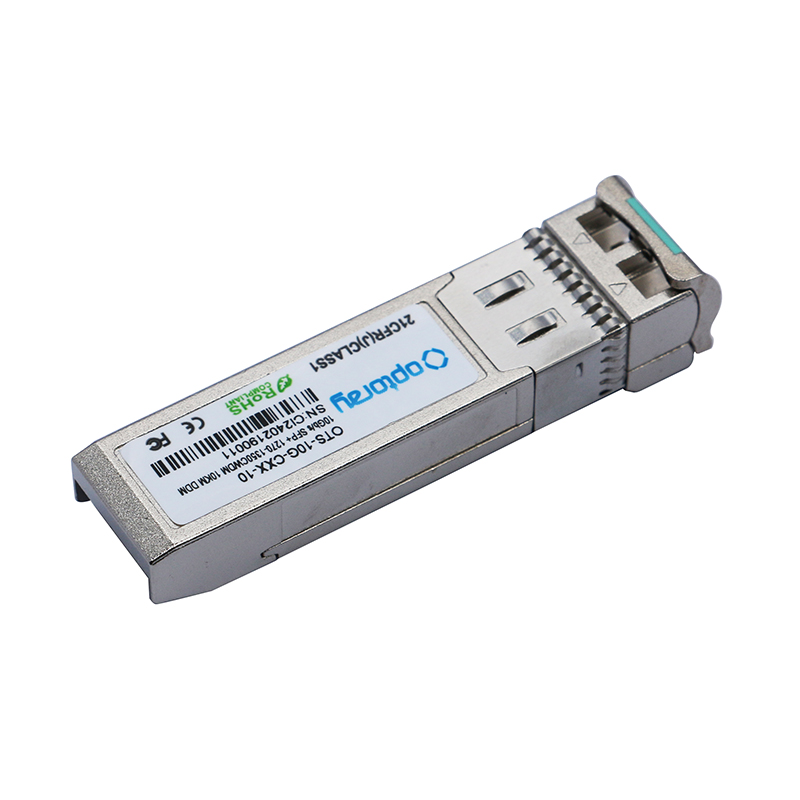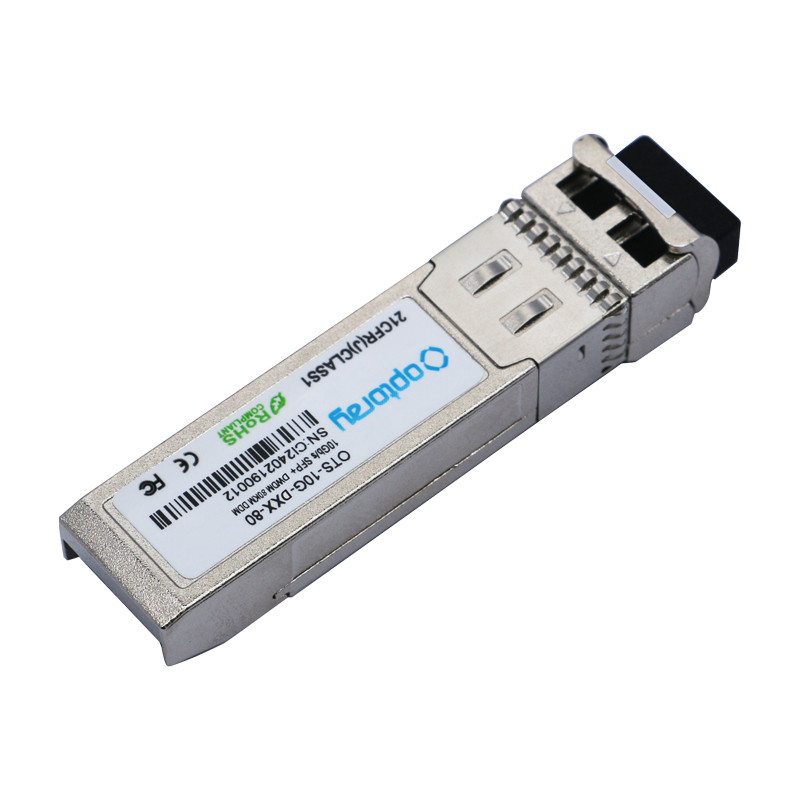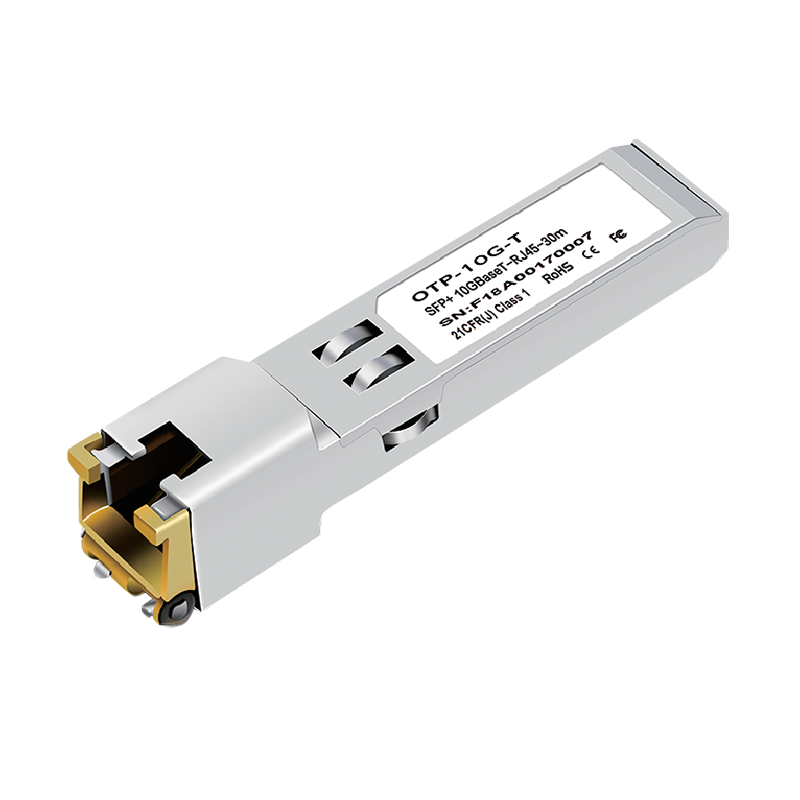+86-0559-5290604
SFP Modules: Core Components in Optical Communications
In today's digital age, data transmission speed and stability are crucial drivers of development across various industries. As the core means of achieving high-speed data transmission, optical communications technology relies on various components that play an indispensable role. SFP modules, a key component of optical communications, have become a crucial bridge connecting network devices thanks to their unique performance and wide applicability. They are widely used in data centers, telecommunications networks, enterprise campuses, and other scenarios.
Basic Definition and Core Functions of SFP Modules
SFP modules, or small form-factor pluggable modules, are hot-swappable optical transceivers primarily used to convert electrical and optical signals in optical fiber communication links. Their "small form-factor pluggable" nature allows for flexible installation and replacement, significantly improving maintenance efficiency and upgrade convenience for network equipment. Compared to earlier optical modules, SFP modules are significantly smaller, enabling network equipment to integrate more ports within limited space, thereby improving overall performance and data processing capabilities.

Functionally, the core function of SFP modules is signal conversion and transmission. When electrical signals are transmitted from network devices (such as switches and routers) to an SFP module, the module's internal transmitter converts the electrical signals into optical signals, which are then transmitted over long distances via optical fiber links. On the receiving end, the SFP module converts the received optical signals back into electrical signals and transmits them to connected network devices, thus enabling bidirectional data communication. This efficient signal conversion ensures data integrity and stability during transmission, providing reliable underlying support for various network applications.
Technical Features and Advantages of SFP Modules
The SFP module's prominent position in the optical communications field is closely related to its superior technical features. It supports a wide range of speeds, meeting the transmission requirements of diverse network environments. Whether operating at 100Mbps, 1Gbps, or even higher speeds, its flexible design adapts to various speed standards, greatly facilitating network upgrades and expansion.
SFP modules offer excellent compatibility. Adhering to unified industry standards, they seamlessly integrate with network equipment from different manufacturers, simplifying device selection and network configuration. This compatibility not only improves network stability but also effectively reduces procurement and maintenance costs for businesses.
The low power consumption of SFP modules is another major advantage. In large-scale network environments such as data centers, the simultaneous operation of numerous modules consumes significant energy. SFP modules, through optimized internal circuit design and the use of high-efficiency chips, effectively reduce power consumption. This not only reduces energy consumption but also reduces heat dissipation pressure on equipment, extending its lifespan.
Main Application Scenarios of SFP Modules
The wide applicability of SFP modules has led to their significant application in various fields. In data centers, the rapid development of technologies such as cloud computing and big data has placed increasing demands on data transmission speeds and bandwidth. With their high speed and high reliability, SFP modules have become the preferred component for connecting servers and switches, and switches and storage devices within data centers, ensuring the rapid transmission and processing of massive amounts of data.

SFP modules also play a key role in telecommunications networks. They are widely used in networks at various levels, including backbone networks, metropolitan area networks, and access networks, for signal transmission between base stations and equipment in computer rooms. Whether for long-distance communications or short-distance access, SFP modules operate reliably, ensuring smooth operation of telecommunications networks and providing users with high-quality voice, data, and video services.
SFP modules also play a vital role in enterprise campus networks. Internal office networks require connecting multiple computers, servers, printers, and other devices. SFP modules enable high-speed interconnection between floors and departments via optical fiber links, improving internal information transmission efficiency and meeting the needs of daily office and business operations.
As a core component in optical communications, SFP modules, with their unique technical advantages and wide range of applications, provide a solid foundation for high-speed data transmission. In the future, with continuous technological innovation, SFP modules will continue to play a vital role, advancing optical communications technology to new levels and injecting new impetus into the development of a digital society.



 English
English русский
русский


